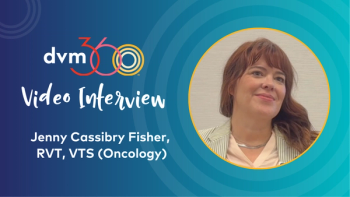
Planning your transition to ownership
With forethought and planning, you can achieve your ownership dreams. And luckily, the skills you've developed to reach this goal will help you adapt to the changes you'll experience.
Buying into a practice is exciting and frightening. As an owner, you'll get a voice in the direction and growth of a practice and you'll help set the practice's standard of care and mold its culture. Plus, a practice is an investment that pays dividends now and provides value when you're ready to sell.
However, with this investment comes financial responsibility and risk. And you'll have more management responsibility, working on such personnel issues as hiring and retaining qualified employees, developing a strong, cohesive team, and resolving conflicts. When you spend more time handling such issues, you'll have to work harder to balance medicine, management, and family commitments. Is it worth it?
Associates who've gone through the process tell me the rewards outweigh the risks. And the vast majority of owners say that knowing what they know now, they'd choose to own a practice again.
To show what the best transitions look likeand how you can achieve the same resultshere's the story of new owner Dr. Alison Smith (a composite character, based on real practitioners). We'll take a look at how her thinking evolved as she assumed ownership and how she used the skills she acquired along the way to land on solid ground.
The build-up
Alison came from an entrepreneurial family and knew when she graduated from veterinary school that she wanted to own a practice. Her plan was to seek a position in a practice that put patients first, provided a positive work environment, enjoyed an excellent reputation in the community, and offered a fair compensation and benefits package.
Although she expected a five- to seven-year period before ownership was offered, she wanted to make sure it was an option. So Alison asked about future ownership opportunities during her interviews.
She took a position in a practice that met her criteria and worked hard to hone her medical and communication skills. The practice owner was an excellent mentor who helped shorten Alison's learning curve. Alison wanted to do all she could to attain the skills necessary for practice ownership, so she attended 20 to 30 hours of external continuing education each year. After two years, Alison started attending management sessions.
During semiannual evaluations, the owner and Alison set goals for the hospital, identified the new challenges and responsibilities Alison would assume in the next six to 12 months, and outlined the CE programs she would attend. They also continued to discuss her ownership potential. By year seven, both agreed they had compatible philosophies and were ready to move forward with Alison's buy-in. She became a partner.
Facing her fears
Alison pursued ownership because she wanted more control over her career and the ability to mold a practice's culture. She also knew as an owner she'd have greater earning potential and would have an asset to sell in the future to ensure long-term financial security. And she liked the idea of job security; as long as the practice prospers, she's guaranteed a position.
When Alison became an owner, however, some real fears surfaced. For example, she worried about the additional debt load she accepted. She was concerned the practice's profitability could drop, compromising her ability to repay her purchase loan. She also felt the weight of her new responsibilityher partner and support staff members were counting on her to help the practice succeed; if it didn't, no one would get paid. And worst of all, what if the practice failed altogether and went out of business?
While she'd always been cognizant of the financial responsibility associated with running a business, Alison had to learn to trust that she bought into a profitable, thriving practice and to have faith in her (and her partner's) ability to continue to grow the practice. While learning this trust took time, Alison acted as a catalyst by regularly reviewing financial information, getting involved in helping develop a budget, and continuing to seek opportunities to enhance patient care.
A second fear had to do with management responsibility. Alison fully expected to shoulder additional commitments once she became an owner. But because she was so focused on her medical responsibilities, which could help her grow the practice, she wasn't allocating much time to management and strategic planning. She knew these areas were vital to the practice's continued success, but finding the time was difficult.
While allocating time for management continues to be a challenge, Alison now sets aside specific time for management and strategic planning, and she meets each week with her partner to discuss their management responsibilities. Alison also continues to attend external CE programs and read management journals and books outside of veterinary medicine to further her knowledge.
A third fear had to do with maintaining the quality of patient care and client service. Through hard work, dedication, and commitment to excellence, Alison's partner had built a practice that enjoyed a first-rate reputation. Alison wanted to maintain that standard and continue to raise the bar to keep clients coming back.
To achieve this goal, she had to learn to trust in the continued tutelage of her mentor and partner. And she had to have faith in herself. After all, her skills, strengths, and capabilities didn't change for the worse the minute she became an owner.
Moving forward
As a new owner, Alison knows she doesn't always have the right answer, and she makes mistakes. But as she gains more experience and continues to receive guidance from her partner, she does her best and continues to expand her knowledge and skills.
If you're thinking about ownership, here's a piece of advice: Let your enthusiasm outweigh your concerns about the risks. Be excited about the opportunities afforded by practice ownership. The results are worth it. You'll have the satisfaction of making a difference for your patients and clients, I think you'll enjoy the growth in management skills that an ownership position brings, and practice ownership typically offers better financial options-even if the leap seems like a challenge from where you stand now.
Newsletter
From exam room tips to practice management insights, get trusted veterinary news delivered straight to your inbox—subscribe to dvm360.




